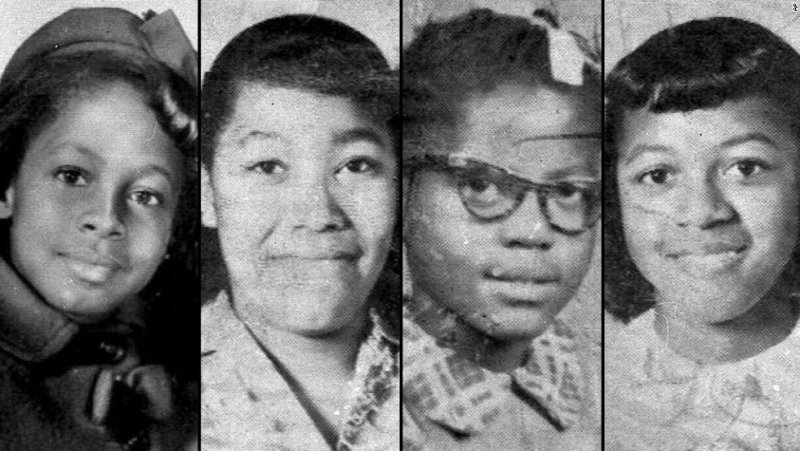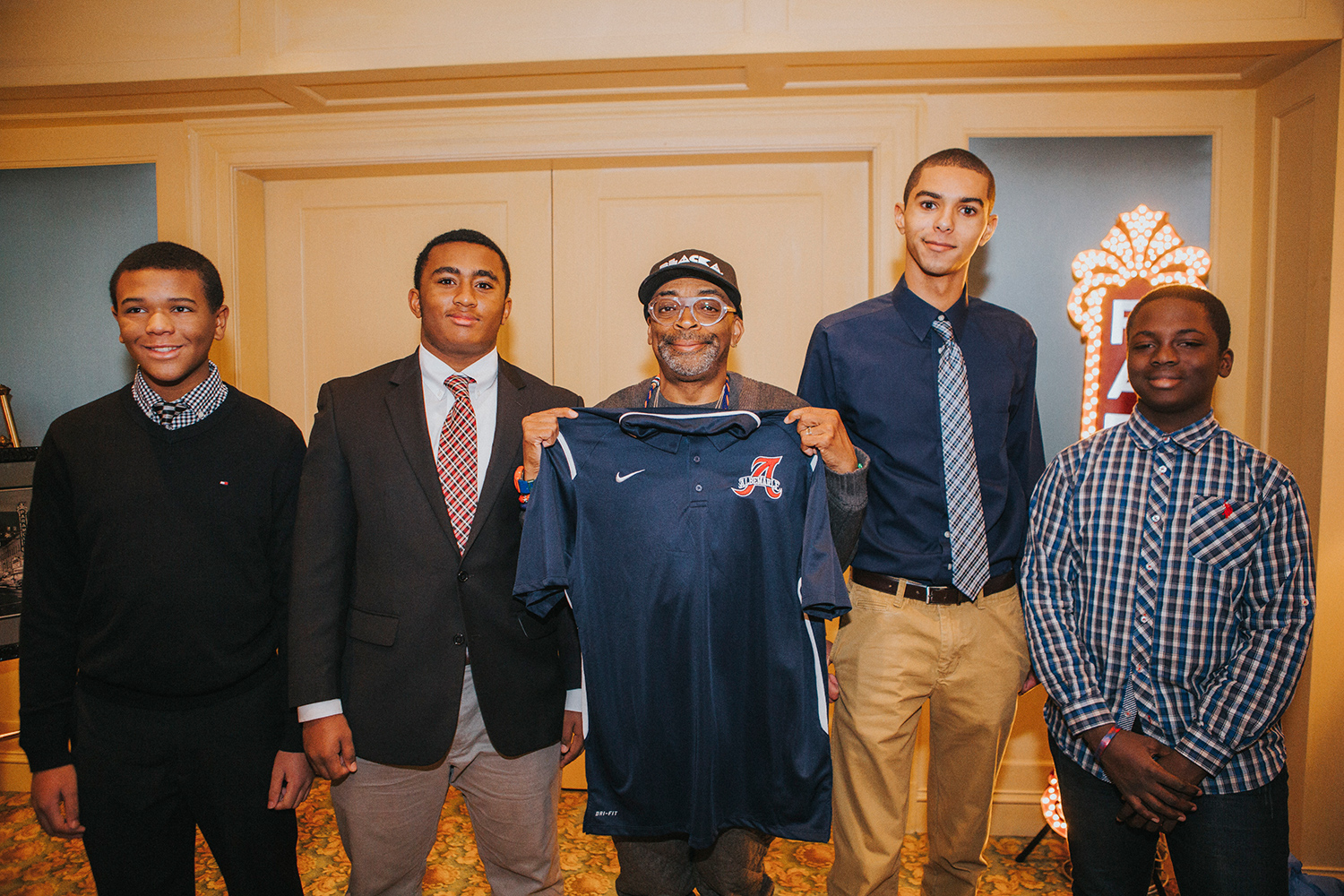Spike Lee Headlines Film Festival with Two Film Screenings, In-Depth Discussion
Acclaimed filmmaker Spike Lee received a standing ovation as he strode onto the stage of the Paramount Theater on Saturday …
Acclaimed filmmaker Spike Lee received a standing ovation as he strode onto the stage of the Paramount Theater on Saturday to share two of his films during this weekend’s Virginia Film Festival.
Lee, an Academy and Emmy award-winning filmmaker, was one of several special guests attending the festival, which is a program of the University of Virginia and the Office of the Provost and Vice Provost for the Arts.
He screened his 1997 documentary, 4 Little Girls, about the bombing of the 16th Street Baptist Church in Birmingham Alabama, and his short film, I Can’t Breathe, investigating Eric Garner’s 2014 chokehold death in police custody and juxtaposing it with a similar plotline in Lee’s 1989 film Do The Right Thing.
Both films were part of the festival’s Race in America film series presented in partnership with James Madison’s Montpelier and its exhibition on slavery, called Mere Distinction of Color.
Introducing Lee, UVA Vice Provost for the Arts Jody Kielbasa, who directs the film festival, said the filmmaker had directed and produced more than 30 films and earned numerous Oscar awards and nominations, including a nomination for 4 Little Girls.

Lee screened his 1997 documentary, “4 Little Girls,” about Denise McNair, Addie Mae Collins, Carole Robinson and Cynthia Wesley, who were killed in the 1963 16th Street Baptist Church bombing in Birmingham, Alabama. (Contributed photo)
“Spike Lee continues to produce cinematic works of art that display his skill and ability to showcase outspoken and provocative social and political critiques that challenge cultural assumptions about race, class and gender identity,” Kielbasa said.
Before the screening, Lee joined Maurice Wallace, associate director of the Carter G. Woodson Institute for African-American and African Studies at UVA, for an on-stage discussion.
The wide-ranging discussion touched on the importance of understanding the history of slavery in America and at the University, the aftermath of the violent Aug. 11 and 12 white supremacist demonstrations at UVA and in Charlottesville, and the importance of acknowledging difficult topics instead of shying away from them.
“If we don’t acknowledge the history of this country and how it was built, we cannot go forward,” Lee said.
Alumna Taylor Poindexter, a 2013 UVA graduate, drove to Charlottesville from Northern Virginia with her mother, Frances, for the event.
“I did not want to miss an opportunity to see Spike Lee,” Poindexter said. “I have heard so much about him growing up… I am very excited about the opportunity to see him and see some of his work.”
Lee also discussed the work that went into each film he screened.
He tracked down Ramsey Orta, the Puerto Rico man who filmed Eric Garner’s arrest on his iPhone, shortly after Garner died. Lee spliced Orta’s grim footage – which he called “the videotape that went around the world” – with powerful direct interviews with Orta himself and video clips from Do The Right Thing. It made for a short but powerful film that repeatedly brought solemn silence to the packed crowd at the theater.
When making Four Little Girls, Lee traveled to Alabama to interview the friends and family members of Denise McNair, Addie Mae Collins, Carole Robinson and Cynthia Wesley, the young black girls killed in the church bombing at the height of the Civil Rights Movement. His unflinching interviews highlight both the joy and pride that the children brought their families, and the extreme pain that came with their deaths in the bombing, which Lee called a “heinous act of homegrown American terrorism.”
“I wanted to convey to the audience and the viewers the pain and the loss,” he said of filming the families several decades after the girls’ deaths. “It never goes away.”
The FBI case on the bombing was reopened shortly after Lee’s documentary premiered in 1997. Four Ku Klux Klansmen were identified as perpetrators; three – Robert Chambliss, Thomas Blanton Jr. and Bobby Cherry – were eventually convicted. The fourth, Herman Cash, was identified as a suspect by the FBI but died before charges were filed.

Students from Albemarle County High School met with Spike Lee during his visit to Charlottesville for the Virginia Film Festival. (Photo by Eze Amos)
Lee also discussed other artists he admired – he gave a special shoutout to O.J.: Made in America director Ezra Edelman, who was in the audience – and shared details of his upcoming work.
Lee was traveling back to New York Saturday night for the premiere of She’s Gotta Have It, a Netflix series based on his 1986 film of the same name. He is also working on a new film, The Black Klansman, based on the memoir of an African-American policeman, Ron Stallworth, who infiltrated the Klan in 1978.
The filmmaker left the audience with some parting advice for students and others who might want to follow in his footsteps.
“We have this falsehood of being called an ‘overnight success.’ That does not exist. That’s a Hollywood thing,” Lee said. “Whatever your chosen field is, you have to be relentless … you can’t get around rolling up your sleeves, using some elbow grease and working on your craft, whatever it is.”
Caroline Newman
University News Associate
Office of University Communications
Original Publication: UVA Today
You are using an old version of Internet Explorer. Our site is developed with the latest technology, which is not supported by older browsers
We recommend that you use Google Chrome for accessing our (or any) website. It is a FREE and modern web-browser which supports the latest web technologies offering you a cleaner and more secure browsing experience.